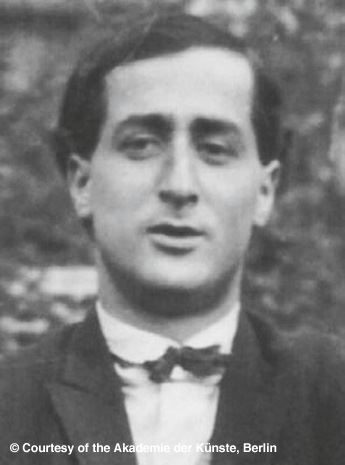
Stefan Wolpe (1902 - 1972)
Born in Berlin, Stefan Wolpe studied there at the Klindworth-Scharwenka Conservatory, later leaving home to take refuge in an artists’ commune. He attended Busoni’s master-classes and was involved in the artistic Dadaism movement, also working as an accompanist for silent films and as a bar pianist. At the advent of National Socialism he moved briefly to Vienna, where he had lessons with Berg, and then, by way of Romania, to Palestine. In 1938 he moved to New York, seeking less conservative musical surroundings. In the United States he became an influential teacher at various establishments, continuing his association with leading innovative artists and musicians, his colleagues including John Cage and Lou Harrison. His pupils included Morton Feldman and Charles Wuorinen.
Vocal and Instrumental Music
Wolpe’s varied compositions reflect some of the changes in his career, from an early neoclassical phase to something approaching final certainty during the last years of his life in America. In the 1940s he turned in particular to Jewish subjects. Among these is his ballet The Man from Midian and the choral Yigdal, based on Maimonides. In his Violin Sonata of 1949 he begins to establish his new voice, reconciling the earlier more diverse tendencies of his writing.



 Grand Piano has gained a reputation for producing high quality recordings of rare keyboard gems. Dedicated to the exploration of undiscovered piano repertoire, the label specialises in complete cycles of piano works by many lesser-known composers, whose output might otherwise have remained unknown and unrecorded.
Grand Piano has gained a reputation for producing high quality recordings of rare keyboard gems. Dedicated to the exploration of undiscovered piano repertoire, the label specialises in complete cycles of piano works by many lesser-known composers, whose output might otherwise have remained unknown and unrecorded.






